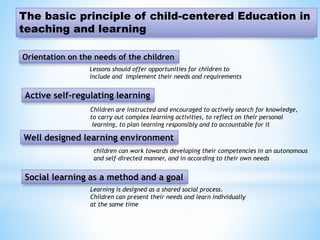Redefining Education: The Impact of Artificial Intelligence
In the ever-evolving landscape of education, Artificial Intelligence (AI) is emerging as a transformative force, reshaping the way we approach learning. The integration of AI in education goes beyond mere digitization, offering a dynamic and personalized experience that caters to the unique needs of each learner.
Personalized Learning Paths: AI as a Learning Companion
Artificial Intelligence in education acts as a learning companion, providing personalized learning paths for students. Through sophisticated algorithms, AI analyzes individual learning patterns, strengths, and weaknesses to tailor educational content and activities. This personalized approach ensures that each student receives the support they need, fostering a more effective and engaging learning experience.
Intelligent Tutoring Systems: Beyond Traditional Classrooms
The traditional classroom model is evolving with the introduction of Intelligent Tutoring Systems powered by AI. These systems offer real-time feedback, assistance, and adaptive learning materials. Students can progress at their own pace, receiving targeted support where needed. The result is a shift from one-size-fits-all teaching to an adaptive, student-centric learning environment.
Enhancing Teacher Efficiency: AI as a Collaborative Partner
AI doesn’t replace teachers; it enhances their capabilities. With smart tools and analytics, teachers can better understand student performance, identify areas of improvement, and optimize teaching strategies. AI acts as a collaborative partner, allowing educators to focus on personalized interactions, mentorship, and fostering a supportive learning atmosphere.
Gamification and Interactive Learning: Engaging the Digital Generation
Incorporating elements of gamification and interactive learning, AI captivates the attention of the digital generation. Educational games, virtual simulations, and AI-driven interactive content turn learning into a dynamic and engaging experience. This approach not only reinforces educational concepts but also makes the learning process enjoyable for students.
Smart Content Creation: Adapting to Individual Needs
AI contributes to the creation of smart educational content that adapts to individual learning needs. Whether it’s generating customized quizzes, suggesting supplementary materials, or providing real-time explanations, AI ensures that educational content aligns with the pace and preferences of each learner. This adaptability caters to diverse learning styles.
Predictive Analytics: Anticipating Learning Trends
Predictive analytics powered by AI helps educators anticipate learning trends and potential challenges. By analyzing data on student performance, engagement, and behavior, AI provides valuable insights. Educators can intervene proactively to address issues, creating a more supportive and responsive educational environment.
Addressing Learning Disabilities: AI for Inclusive Education
AI plays a crucial role in fostering inclusive education by addressing learning disabilities. Speech recognition technologies assist students with dyslexia, while language translation tools cater to non-native speakers. AI-driven tools provide additional support, ensuring that education is accessible to students with diverse needs and abilities.
Lifelong Learning: AI’s Role in Continuous Education
The concept of lifelong learning is gaining prominence, and AI is at the forefront of this paradigm shift. AI-driven platforms offer continuous education opportunities, allowing individuals to upskill and reskill throughout their lives. This aligns with the evolving demands of the workforce and encourages a culture of continuous learning.
Embrace the Future: AI in Education
To explore the transformative potential of AI in education, visit www.igaseng.com. It’s a journey into the future of learning, where AI serves as a catalyst for innovation, personalization, and inclusivity. Embrace the possibilities, engage with the evolution, and witness how AI is redefining education to create a dynamic and adaptive learning landscape.






